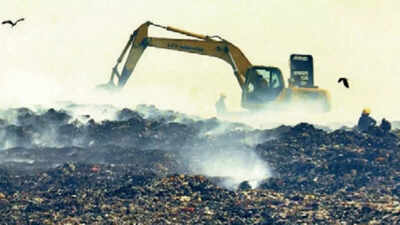- News
- City News
- mumbai News
- CAG flags delay in setting up Mumbai's Deonar waste-to-energy plant
Trending
CAG flags delay in setting up Mumbai's Deonar waste-to-energy plant
The CAG report highlights a four-year delay in Mumbai's Deonar waste-to-energy plant project, leading to over 51.3 lakh tonnes of unprocessed waste at the site. It was awarded in Aug 2022, with completion expected in Oct. Meanwhile, the CAG praised Malkapur for its biogas and solar-powered compost plant, significantly reducing energy costs.
MUMBAI: Flagging the delay in building a waste-to-energy plant at the 311-acre Deonar dumping ground, the comptroller and auditor general (CAG) said over 51.3 lakh tonnes of unprocessed waste accumulated at the landfill between 2016-17 and 2021-22.
The CAG report, which was tabled in the legislature on Wednesday, said the plant project was awarded in Aug 2022 after a four-year delay stemming from issues with pre-bid queries, geotechnical assessment and work order issuance, leaving waste unprocessed. "BMC planned to mitigate the environmental issues of open dumping at Deonar... by developing a waste-to-energy plant. However, the commissioning was not completed..." said the report that assessed data till Jan 2024.

While presenting BMC's 2025-26 budget in Feb, civic chief Bhushan Gagrani had said the plant would have the capacity to process 600 tonnes of waste and generate about 8MW of electricity daily. He had said its construction was underway and it is expected to be commissioned by this Oct.
Meanwhile, the CAG report lauded Malkapur Municipal Council in Buldhana district for its biogas-powered compost plant and solar-powered facility, which cut energy costs by 68%, holding it as a model of sustainable waste management. "During joint physical verification... it was noticed that the entire energy requirement of a compost plant was met through a biogas plant that used segregated hotel wet waste for electricity generation.
This practice resulted in zero external energy consumption for operating the compost plant. Further, electricity generated from solar panels installed on a 2 tonne per day mechanical composting plant was used for operating the plant, thereby reducing energy charges by 68%."

About the Author
Richa PintoEnd of Article
FOLLOW US ON SOCIAL MEDIA









